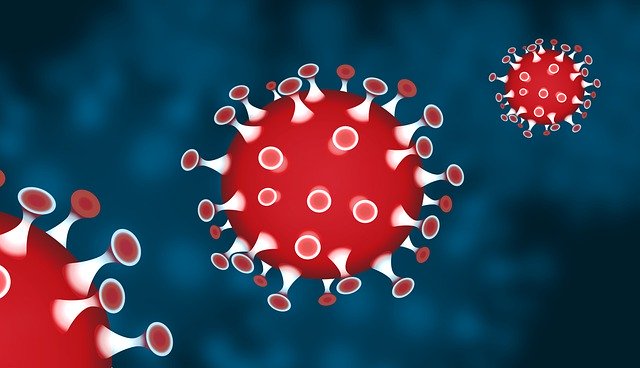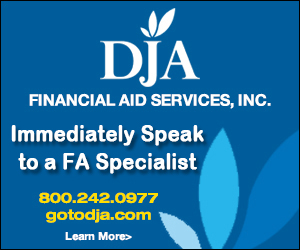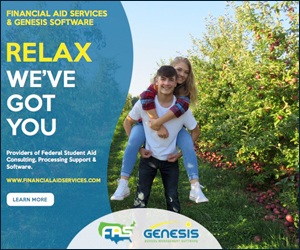 |
| Archive | Subscribe | Printer Friendly | Send to a Friend | www.beautyschools.org |
|
What's Hot
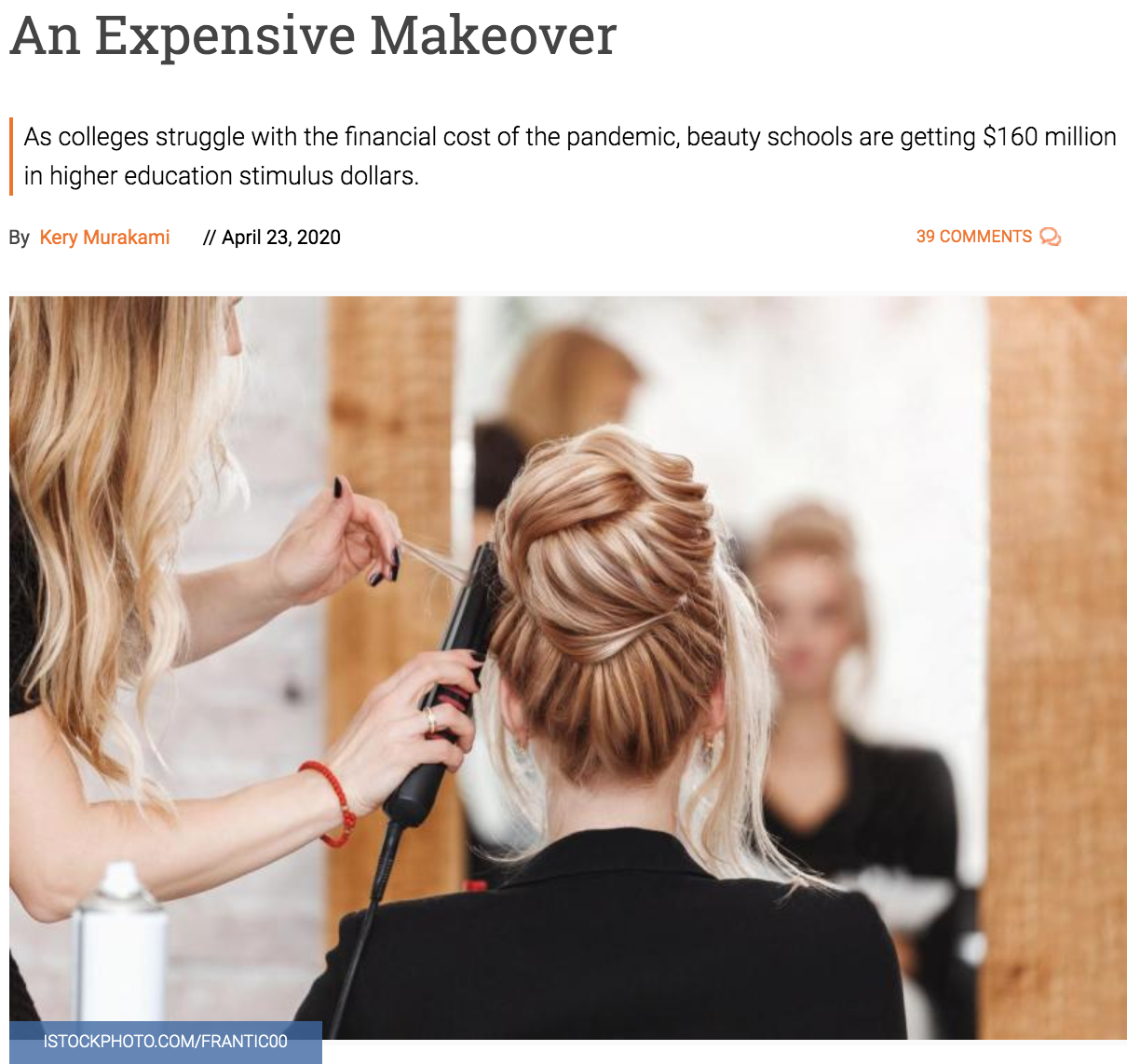
AACS is here for you with a comprehensive coronavirus resource page that will be updated as new information comes in. Click here for updates from the Centers for Disease Control, World Health Organization, Small Business Administration, U.S. Department of Education, accreditors, distance learning educators and more. As each state and location works on the protocol to reopen businesses, the White House has provided information to consider, which you can find here. The Notice of Proposed Rule Making (NPRM), published on April 2, now has a number of proposed changes that AACS member schools should support. Please join your Government Relations Committee in sending letters to the U.S. Department of Education. As the changes are nuanced and detailed, we have made the process relatively easy, only requiring that you add your institution’s name at the beginning of the letter. To send your letter click here. AACS’ General Counsel Duane Morris LLP has provided highlights on clarifications from the Paycheck Protection Program FAQs released by the Small Business Administration and the U.S. Department of the Treasury. For the FAQs, click here. Member Benefits
Especially during this time of the coronavirus pandemic, we have been hosting webinars for members to provide the latest information to help you continue to serve your students and manage your business. If you missed a webinar, recordings are available to members only. Webinars to date are: Navigating Distance Education
If you would like the recording, email info@beautyschools.org. More will be available soon. Monitor your inbox for the latest information. Additional FAQs are available regarding:
 Prescription RX card benefit
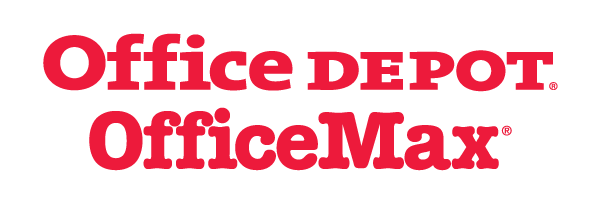 Home office needs? Try the Office Depot – OfficeMax member benefit GRC News
Federal Legislative Weekly Update
Congress April 24, 2020 – President Donald Trump signed a $484 billion bipartisan measure to deliver urgent pandemic relief to ailing small businesses, overburdened hospitals and critical testing efforts. The House cleared the package, H.R. 266 (116), on Thursday, after the Senate moved the legislation by unanimous consent on Tuesday. With the president’s signature, Congress has now approved nearly $3 trillion across four different bills in response to the coronavirus outbreak. The latest measure began as a Senate GOP push to replenish the $350 billion Paycheck Protection Program, which was created by last month’s $2 trillion economic rescue package, H.R. 748 (116).
April 21, 2020 – The Department released an announcement providing information specific to Cohort Default Rates (CDRs) and Federal Work-Study (FWS) community service requirements and provides for flexibilities due to the declaration of the COVID-19 national emergency:
After quickly making available more than $6 billion for colleges and universities to provide direct emergency cash grants to students, U.S. Secretary of Education Betsy DeVos announced an additional $6.2 billion is now available to higher education institutions to ensure learning continues. The funding is available through the Higher Education Emergency Relief Fund authorized by the Coronavirus Aid, Relief, and Economic Security (CARES) Act, signed into law by President Donald J. Trump less than one month ago. The Trump administration prohibited undocumented college students from receiving emergency federal cash assistance for expenses like food, child care and housing. The economic rescue law, H.R. 748 (116), passed by Congress gives $6 billion to colleges to dole out to students for expenses stemming from the disruption on campuses caused by the pandemic. But Education Department officials in new guidance said the money can go only to students who qualify for federal financial aid — U.S. citizens and some legal permanent residents. April 22, 2020 – U.S. Secretary of Education Betsy DeVos issued the following statement on the Higher Education Emergency Relief Fund (HEERF), created by the Coronavirus Aid, Relief, and Economic Security (CARES) Act: “Congress required by law that taxpayer Emergency Relief funds be given to all colleges and universities, no matter their wealth. But as I've said all along, wealthy institutions that do not primarily serve low-income students do not need or deserve additional taxpayer funds. This is common sense. Schools with large endowments should not apply for funds so more can be given to students who need support the most. It's also important for Congress to change the law to make sure no more taxpayer funds go to elite, wealthy institutions.” April 23, 2020 – The U.S. Department of Education, Office of Inspector General has published its new Guide for Financial Statement Audits and Compliance Attestation Engagements of Guaranty Agency Servicers Administering the Federal Family Education Loan Program (Guide). This Guide supersedes the March 2000 edition of the Audit Guide, Audits of Guaranty Agency Servicers Participating in the Federal Family Education Loan (FFEL) Program, and the related 2006 amendment. The Guide is effective for fiscal years ending on or after December 31, 2020. Early implementation is not permitted. April 24, 2020 – U.S. Secretary of Education Betsy DeVos announced the U.S. Department of Education is inviting a new cohort of 67 schools to participate in its Second Chance Pell experiment, creating more education opportunities for incarcerated students. This action expands on the Trump Administration's commitment to offer incarcerated individuals a second chance upon their re-entry to society, helping to reduce rates of recidivism. The expansion more than doubles the size of the experiment, allowing incarcerated students to use Federal Pell Grants at 130 schools located in 42 states and the District of Columbia. Prior to the announcement, there were 63 schools located in 26 states participating in this experiment. The Department released an electronic announcement announcing the availability of revised Master Promissory Notes (MPNs) for Direct Subsidized Loans and Direct Unsubsidized Loans (Direct Subsidized/Unsubsidized Loan MPN), as well as for Direct PLUS Loans (Direct PLUS Loan MPN). The revised versions of the Direct Subsidized/Unsubsidized Loan MPN and Direct PLUS Loan MPN now have the same OMB Control Number, 1845-0007, and the new expiration date for both MPNs is 7/31/2022.
U.S. Secretary of Education Betsy DeVos announced more than $300 million in discretionary grant funds will be available for states to use to create adaptable, innovative learning opportunities for K-12 and postsecondary learners in response to the COVID-19 national emergency. The grants will be funded through the Education Stabilization Fund (ESF), authorized by the Coronavirus Aid, Relief, and Economic Security (CARES) Act, signed into law by President Donald J. Trump. In a notice published in the Federal Register, the Department is proposing a revision of the Student Support Services (SSS) Annual Performance Report information collection. SSS program grantees must submit the Annual Performance Report (APR) annually. The reports are used to evaluate grantees' performance for substantial progress, respond to Government Performance and Results Act (GPRA) requirements, and award prior experience points at the end of each project (budget) period. The Department also aggregates the data to provide descriptive information on the projects and to analyze the impact of the SSS program on the academic progress of participating students. The Department of Education (Department) is requesting approval of a revision of a collection that is currently active due to this APR no longer collects Social Security Numbers, so that field has been eliminated. The Department of Education and Federal Communications Commission are calling on state and local leaders to use stimulus funds for remote learning during the coronavirus emergency. The CARES Act, H.R. 748 (116) provides more than $13 billion in grants that elementary and secondary schools can use for purposes that include remote learning and $3 billion in emergency block grants for governors to use at their discretion to support schools and colleges. Education Secretary Betsy DeVos said the “extraordinarily flexible” education funding empowers state and local leaders to “do the right thing for students and teachers” to ensure they have what they need for learning to continue. Recently Introduced Federal Legislation H.R.266 – Paycheck Protection Program and Health Care Enhancement Act
H.R.6597 – Equity in Student Loan Relief Act
H.R.6592 – Coronavirus Relief for States Act
H.R.6588 – Homeland Security Higher Education Advisory Council Act
State Update State Updates from Utah and Virginia There are nine state legislatures actively meeting this week despite the ongoing Coronavirus outbreak. AACS will continue to keep you apprised of the latest state developments of interest to member schools. Please do not hesitate to contact Brian Newman at bnewman@abingdonstrategies.com or by phone at 202-491-5254 with comments or questions. You may also visit AACS’ Bill Tracking Portal to view bill text and to track bills from your state. Utah’s legislature passed a bill last week that provides civil immunity “for damages or an injury resulting from exposure of an individual to COVID-19 on the premises owned or operated by the person, or during an activity managed by the person.” However, immunity does not apply to: “(a) willful misconduct; (b) reckless infliction of harm; or (c) intentional infliction of harm.” SB 3007 passed the Senate by a vote of 22 to 6 and the House by a vote of 54 to 21. The measure is currently being enrolled for transmission to Governor Herbert (R). Since the bill received a two-thirds majority vote in both legislative chambers it will become effective upon approval by the Governor. A similar New Jersey bill – A3951 – was introduced on April 13, 2020. State Assemblyman Brian Bergen (R – Morris and Somerset) said in his sponsorship statement, “the bill provides that, notwithstanding the provisions of any law, rule, or regulation to the contrary, an employer would not be liable to an employee for civil damages for injury or death related to an act or omission by the employer that allegedly resulted in the employee’s exposure to coronavirus disease 2019 (COVID-19) during the public health emergency and state of emergency declared by the Governor in Executive Order 103 of 2020. The immunity granted pursuant to the bill would not apply to acts or omissions constituting gross negligence, recklessness, or willful misconduct.” A3951 has been referred to the Assembly Judiciary Committee. Virginia Governor Signs Bill Banning Arbitration Agreements Virginia Governor Ralph Northam (D) signed HB 375 into law earlier this month. The measure prohibits postsecondary schools certified by the State Council of Higher Education for Virginia from conditioning the enrollment of a student on: “(i) entering into an agreement that requires the student to arbitrate any dispute between the student and the school, regardless of whether the agreement permits the student to opt out of the requirement to arbitrate any such dispute in the future; or (ii) entering into an agreement that requires the student to resolve a dispute on an individual basis and waive the right to class or group actions.” The bill will become effective on July 1, 2020.
Laura Todd, the Founder of the Institute of Advanced Medical Aesthetics in Ashland, Virginia, was among the diverse group of business leaders appointed to serve on the Commonwealth of Virginia’s COVID-19 Business Task Force. This group has been tasked with providing advice and guidance to the Governor’s Cabinet on a safe, responsible strategy for easing restrictions on businesses and individuals. “These are Virginians who are thinking everyday about how to protect the health of their staff and the communities in which they operate,” said Governor Northam. “They understand that our public health and business interests are aligned—we must take measures that both ensure the safety and confidence of consumers and prevent the spread of disease. Their input will continue to be critical as we plan a safe, consistent, successful path forward.” Laura currently represents Virginia on the AACS State Relations Committee. She previously played an integral role in establishing esthetics licensure in Virginia and helped write the Commonwealth’s esthetics regulations during her tenure on the Board for Barbers and Cosmetology. The official announcement can be found here. The Task Force also includes a Richmond barbershop owner and a Blackstone salon owner, in addition to representatives from restaurants, breweries, wineries, museums, entertainment venues, and large companies including Amazon, Walmart, and Volvo.
State Bill Introductions Minnesota SF 4527 – The bill would exempt Minnesota salons and barber shops from Emergency Executive Order 20-20 in order to permit retail sales and the curbside pickup of products during the COVID-19 emergency. Pennsylvania HB 2456 – The measure would allow Pennsylvania estheticians to perform “mechanical exfoliation” and “microneedling.” According to State Representative Christopher Quinn (R), the bill’s prime sponsor, “microneedling and microdermabrasion have become some of the most popular procedures in skin beauty treatments over the last several years. Microdermabrasion is a procedure that exfoliates and removes the superficial layer of dry, dead skin cells. Microneedling, also known as percutaneous collagen induction, involves superficial controlled puncturing of the skin at a set depth with fine needles that create channels in the skin…It has been recently brought to my attention that while it is not uncommon for several salons in Pennsylvania to be providing these services, the Bureau of Professional and Occupational Affairs within the Department of State has sent letters to salons in response to complaints stating that the performance of microneedling and microdermabrasion is a violation of the Cosmetology Law and should not be performed in Pennsylvania salons. Therefore, I plan to amend the Cosmetology Law to include these procedures.” State Reopening Guidance A list of state reopening guidance for salons and other personal care businesses can be found here. While six states were listed at press time in this AACS State Relations report, additional guidance will be added as states finalize and post their reopening plans. COVID-19 Resources AACS Coronavirus Resource Center State and Local Government Responses to Covid-19 |


